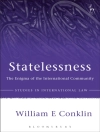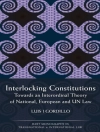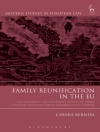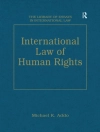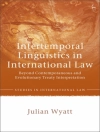At the summit in Laeken in December 2001 the European Council opened the debate on the reform of the supranational structures through its ‘Declaration on the Future of the European Union’ and proposed a wide-ranging agenda. The European Convention, with the mandate of the European Council, has been forming proposals for a more democratic, transparent and efficient European Union and presented a draft of a Treaty establishing a Constitution for Europe on 20th of June 2003. On these fundaments the Intergovernmental Conference finally came to a compromise in summer 2004 after wrestling especially with the problem of qualified majority voting within the Council. On 29th of October 2004 the Heads of State and Governments of the 25 Member States signed the Treaty. After the French and Dutch citizens refused their approval of the Treaty in referendums the future of the draft Constitution remains uncertain. The volume contains articles from high-ranking experts from politics and academia of different Member States about the basic principles of the actual constitutional law of the European Union and its need of reform through a Constitution for Europe. By analysing the rules to govern a Europe of 25 and in time 28 and more Member States the publication intends to make a contribution to the emerging ‘Ius Publicum Europaeum’.
قائمة المحتويات
Basics of the Constitutional law.- European integration through constitutional law.- The ability of a European Constitution to forge a European identity.- “Identity building” by means of a European Constitution? Some reflections from a Swiss point of view.- Perspectives of the Project for a European Constitution.- The Issue of the Legal Nature of the Constitutional Treaty and the System of Sources.- Economic and market direction in the European Constitution.- A first evaluation of the European Constitution.- Some critical remarks on the Treaty establishing a Constitution for Europe.- Expectations of the German foreign policy towards the European Constitutional Treaty.- Fundamental values and fundamental rights in the European Constitution.- The purposes of the European Union according to the Constitutional Treaty.- The religious element in the Constitution for Europe.- Citizenship of the Union and Fundamental Rights in the Constitution of the EU.- From the European Convention on Human Rights to the European Charter of Fundamental Rights: The prospects for the protection of human rights in Europe.- Social rights and European neo-constitutionalism.- The Common Law System in a constitutionalised European Union — An analysis in the light of the principle of Equality.- Fundamental Rights in Central and Eastern Europe: A Basic Analysis.- Protection of Fundamental Rights afforded by the European Court of Justice in Luxembourg.- The legal relationship between the European Court of Human Rights and the Court of Justice of the European Communities according to the European Convention on Human Rights.- Europe as a federal commonwealth.- Draft Constitution of the European Union: the new division of competences.- The order of competence within the Treaty establishing a Constitution for Europe.- The distribution of competences between the European Union and the Member States in the light of the new Constitutional Treaty: the Spanish experience.- Remarks on the system of the sources of law in the Treaty establishing a Constitution for Europe: complementary issues and framework of reference.- The Supremacy of European law in the Treaty establishing a Constitution for Europe in the light of Community experience.- European Financial regulation.- The EU as a federal commonwealth.- Institutions and Procedures.- The parliamentarisation of the institutional structure of the European Union between representative democracy and participatory democracy.- The balance of power between the European Council, the Council and the Commission in the draft European Constitution.- The development of the Committee of the Regions.- The Role of Regional and Local Government in European Governance.


